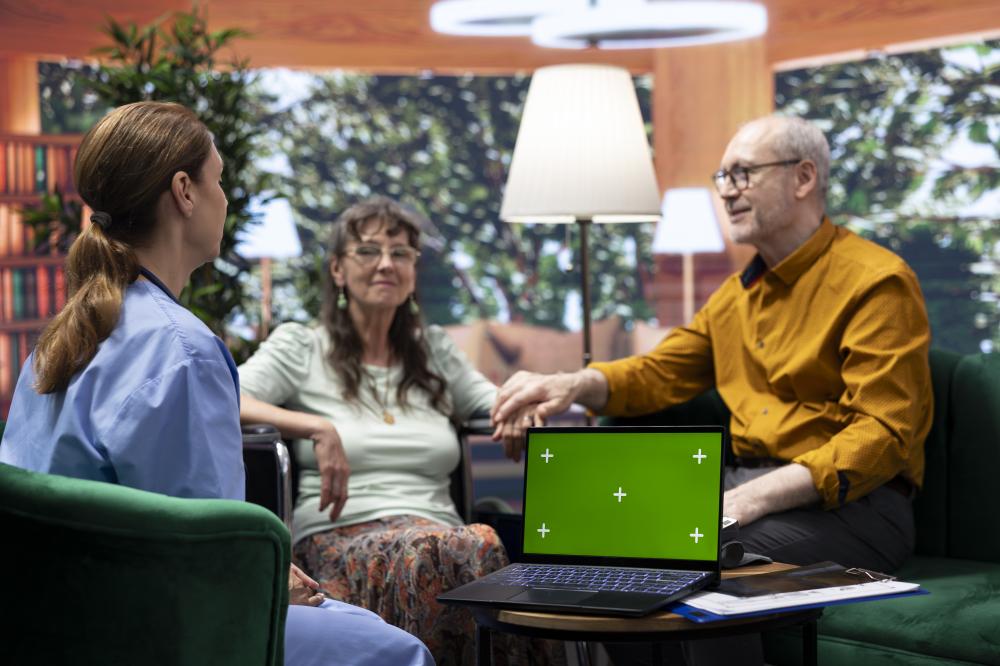
The Importance of Virtual Care in Modern Therapy
The landscape of mental health care has evolved dramatically, with virtual outpatient mental health services emerging as a cornerstone in modern therapy. These services have not only expanded accessibility but also allowed for greater flexibility in treatment schedules. Numerous individuals who previously faced barriers such as location, transportation, or time constraints are now able to access care from their own homes.
Virtual outpatient mental health services offer the convenience of receiving expert guidance without the need to travel, thereby reducing the stress and anxiety associated with traditional therapy settings. This convenience is especially beneficial for individuals with mobility challenges, busy schedules, or those who reside in remote areas. Virtual therapy sessions also promote a sense of privacy and comfort, as they take place in familiar environments.
Customizable Treatment Options
One of the standout features of virtual outpatient mental health programs is the ability to tailor treatment plans to the specific needs of each client. At Mind Thrive, individuals can engage in various levels of care ranging from Intensive Outpatient Programs (IOP) to outpatient care. This flexibility ensures that clients receive the appropriate level of support based on their unique circumstances and progress.
During my time at Mind Thrive, I witnessed how personalized approaches greatly enhance recovery outcomes. Clients are more engaged and committed to their treatment when they feel their individual challenges are being acknowledged and addressed. Personalized treatment plans empower clients to actively participate in their journey toward better mental health.
Professional Expertise and Support
Virtual outpatient mental health services are guided by experienced professionals, ensuring clients receive the highest standard of care. At Mind Thrive, Masters-Level Therapists and Psychologists lead therapeutic sessions, bringing a wealth of knowledge and expertise to every interaction. These professionals are adept at addressing a wide range of mental health conditions, including Anxiety Disorder, Depression, PTSD, and more.
The quality of care is further enhanced by the accreditation from The Joint Commission, a testament to the organization’s commitment to maintaining exceptional service standards. This guarantees that clients are receiving evidence-based practices and the most current therapeutic techniques available.
In addition to individual therapy, group sessions provide a platform for clients to connect and share experiences, fostering a sense of community and peer support. These interactions often lead to valuable insights and collective motivation, crucial components in the healing process.
Medication Management and Integrated Care
Incorporating medication management into virtual outpatient mental health services is essential for a holistic approach to treatment. For clients who require medication as part of their recovery, Mind Thrive offers comprehensive management strategies. These strategies involve regular assessments and adjustments by qualified professionals to ensure optimal medication efficacy and client safety.
During my tenure at Mind Thrive, I observed firsthand how integrated care models significantly improve client outcomes. By seamlessly combining therapeutic methods with medication management, clients experience more balanced and sustained progress. This integrated approach is particularly effective for treating complex conditions like Bipolar Disorder and Co-Occurring Disorders.
The Role of Technology in Virtual Care
Technology plays a pivotal role in enhancing the delivery of virtual outpatient mental health services. Secure video conferencing platforms allow for real-time interaction between clients and therapists, replicating the in-person experience as closely as possible. These platforms ensure confidentiality and data protection, which are critical in maintaining client trust and compliance.
Beyond video sessions, clients have access to digital resources, including educational materials and tools for tracking progress, which complement their therapy. By leveraging technology, Mind Thrive is able to offer a richer, more dynamic therapeutic experience that adapts to the evolving needs of their clients.
Overcoming Stigma and Promoting Accessibility
Despite strides in mental health awareness, stigma remains a barrier for many seeking treatment. Virtual outpatient mental health services offer a discreet and accessible option for individuals hesitant to pursue traditional therapy. By removing the need for in-person visits, clients can engage in therapy without fear of judgment or exposure.
The accessibility of virtual therapy also reduces the impact of socioeconomic barriers. At Mind Thrive, most major insurance plans are accepted, and clients receive assistance in navigating their insurance coverage. This ensures that financial constraints do not hinder access to quality mental health care.
The pandemic has highlighted the need for accessible mental health services, and virtual outpatient programs have risen to meet this demand. By offering these services, Mind Thrive contributes to a more inclusive and supportive mental health landscape.
Holistic Therapies for Comprehensive Care
Mind Thrive integrates holistic therapies into their virtual outpatient mental health services, providing a well-rounded approach to treatment. These therapies include mindfulness practices, cognitive-behavioral therapy, and dialectical behavior therapy. Each modality offers unique benefits, contributing to overall mental well-being.
During my practice, I have seen clients thrive when given the opportunity to explore various therapeutic avenues. Holistic therapies encourage clients to develop skills such as emotional regulation, stress management, and self-awareness, which are essential for long-term recovery and resilience.
By embracing this multidisciplinary approach, Mind Thrive empowers clients to heal not only mentally but also physically and spiritually, fostering a more profound transformation.
Community Building and Peer Support
Community and connection are vital components of the healing process. Virtual outpatient services at Mind Thrive include opportunities for clients to engage with peers who share similar experiences. These interactions build a sense of solidarity and mutual encouragement, crucial for maintaining motivation and accountability.
Group sessions facilitate the development of meaningful relationships, where clients can safely discuss challenges and celebrate victories. This supportive network often extends beyond therapy sessions, creating lasting bonds that reinforce the recovery journey.
Personal Insights from the Field
Having worked within the field of virtual outpatient mental health, I can attest to the transformative power of these services. Clients often express relief and gratitude for the flexibility and accessibility afforded by virtual therapy. This format not only meets modern demands but also aligns with the lifestyles of today’s clients.
Witnessing clients achieve milestones and regain control over their lives reinforces the value of virtual outpatient mental health programs. The adaptability of these services allows for continuous improvement and innovation, ensuring that therapy evolves alongside our dynamic world.
The Future of Mental Health Treatment
The future of mental health treatment lies in the ongoing integration of virtual care with traditional methods. As technology advances, the potential for enhanced therapeutic experiences grows–ranging from augmented reality environments to AI-driven support systems. These innovations promise to broaden the scope and impact of mental health services globally.
Mind Thrive is at the forefront of this movement, continually exploring new ways to optimize care delivery and client engagement. By embracing emerging technologies and fostering an adaptable approach, they pave the way for a brighter, more accessible future in mental health care.

What is virtual intensive outpatient therapy?
Virtual Intensive Outpatient Therapy (IOP) is a structured form of mental health care that allows individuals to receive treatment from the comfort of their own homes. This form of therapy typically involves a combination of individual and group sessions conducted via secure video conferencing platforms. At Mind Thrive, we offer virtual IOP as part of our comprehensive mental health services, allowing clients to balance therapy with daily life commitments. Imagine being able to attend a therapy session during your lunch break or after work without the hassle of commuting–this is the kind of flexibility virtual IOP provides.
Can telehealth be used for mental health care?
Absolutely, telehealth is a transformative tool in mental health care. It offers convenience, reduces barriers like travel, and expands access to expert care regardless of geographic location. Mind Thrive embraces telehealth to provide diverse therapeutic approaches, meaning whether you’re dealing with anxiety, depression, or other mental health issues, professional help is just a few clicks away. The ability to connect with therapists in real-time from any location helps demystify therapy, offering a private and comfortable setting for clients.
What does outpatient mental health include?
Outpatient mental health care includes a variety of services designed to accommodate those who do not require inpatient treatment. At Mind Thrive, our outpatient programs encompass individual therapy, group sessions, medication management, and holistic treatment options like mindfulness and cognitive-behavioral therapy. These programs are tailored to your individual needs, ensuring that support is always aligned with your personal recovery goals. We believe outpatient care is essential for those seeking to maintain balance in their everyday life while receiving the care they need.
How much does IOP cost per day?
The cost of Intensive Outpatient Programs (IOP) can vary widely depending on factors like the location of the service and the specific treatment plan. At Mind Thrive, we strive to make our programs accessible by accepting most major insurance plans and assisting clients in navigating their coverage options to minimize out-of-pocket expenses. It’s best to contact us directly to discuss your specific situation and financial options. Remember, investing in your mental health is a step towards a healthier future, and we aim to make that journey as straightforward as possible.
How do holistic therapies play a role in virtual outpatient mental health care?
Holistic therapies are an integral part of the virtual outpatient mental health care provided by Mind Thrive. These therapies aim to treat the whole person–mind, body, and spirit–rather than just focusing on symptoms. Clients have the opportunity to engage in practices such as mindfulness, yoga, or art therapy, which can be done remotely and often lead to enhanced emotional regulation and stress management. We’ve seen countless clients transform their lives by incorporating these practices, leading to greater resilience and a deeper sense of well-being.
How does technology enhance virtual outpatient mental health services?
Technology is a cornerstone in the delivery of virtual outpatient mental health services at Mind Thrive. Secure video conferencing makes it possible to replicate the in-person therapeutic experience, ensuring confidentiality and ease of access. Additionally, digital tools allow clients to track their progress and access educational materials, enriching their overall treatment journey. With the ever-evolving tech landscape, we are continually seeking new ways to optimize client engagement and therapy outcomes, ensuring that the benefits of these innovations are fully realized.
Resources
- MentalHealth.gov – Official website providing information on mental health, mental illness, and treatment options.
- National Alliance on Mental Illness (NAMI) – Organization offering education, support, and advocacy for individuals and families affected by mental illness.
- Psychology Today – Online platform featuring articles, resources, and a directory of mental health professionals.
- National Institute of Mental Health (NIMH) – Federal agency conducting research on mental disorders and providing resources for the public.
- American Psychological Association (APA) – Professional organization for psychologists, offering resources on mental health, research, and therapy.
